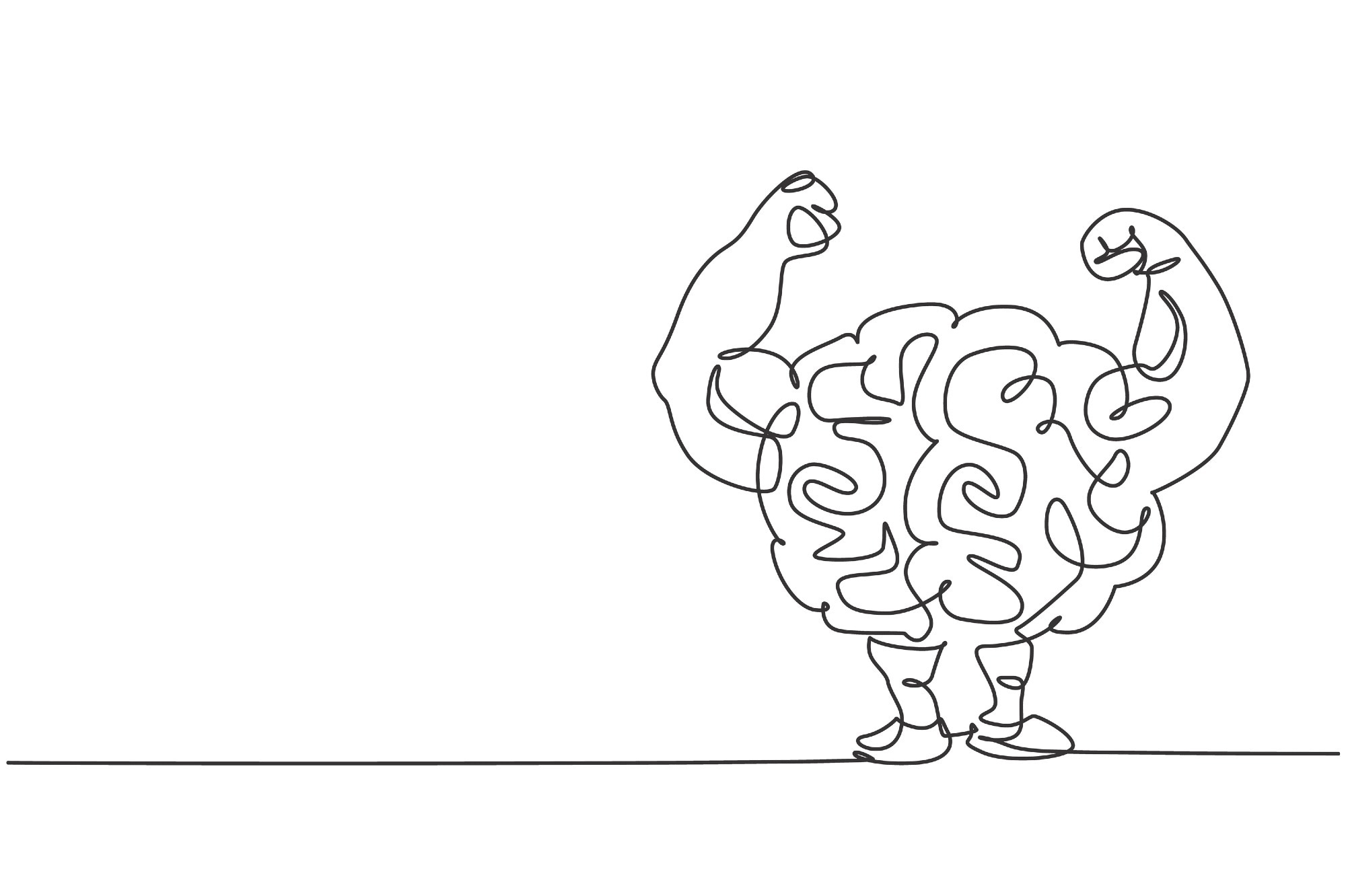In a recent study published in the journal PNAS, researchers used a gradient approach to examine how brain state alterations during routine (natural) and regulated dietary decision-making processes influence the success of diet modification attempts. They further investigate the role of body mass indices (BMI) and the extent of brain activity modifications in this success. Their findings reveal that BMI plays a significant role in observed dietary outcomes, with higher BMI resulting in lower success rates. The number and extent of brain modifications were also found to be substantial, with fewer and smaller reconfigurations presenting better results than more extensive changes.
 Study: Body mass index–dependent shifts along large-scale gradients in human cortical organization explain dietary regulatory success. Image Credit: Simple Line / Shutterstock
Study: Body mass index–dependent shifts along large-scale gradients in human cortical organization explain dietary regulatory success. Image Credit: Simple Line / Shutterstock
The role of mind and body on diet pattern adherence
Chronic diseases, including cancers and cardiovascular diseases (CVDs), are some of the most persistent healthcare challenges in the world today, with their increasing prevalence predominantly attributable to poor health behaviors such as inconsistent sleep and suboptimal diets. Obesity and overweight are particularly concerning, with reports estimating more than one billion patients worldwide, with projections predicting 18% of the world population suffering from the condition by 2025.
Encouragingly, the global human population seems to have woken up to these pressing issues, promoting the rising popularity of healthy, primarily vegetarian diets (e.g., the Mediterranean dietary pattern and DASH) and fitness routines. In America alone, more than 40% of the population reportedly actively engages in weight loss attempts. Unfortunately, the outcomes of these dietary and fitness interventions remain surprisingly heterogeneous – some individuals display remarkable weight loss, while others' attempts are met with failure.
Recent neuroimaging studies have attempted to shed light on these inconsistencies and have hitherto identified numerous brain areas consistently activated during dietary regulation attempts, including the supplemental motor cortex, the dorsolateral prefrontal cortex, and the anterior insula. However, attempts to establish replicable associations between these activation centers and individual differences in regulatory successes remain confounding. The complexity of food choices and their relationships with individuals' preferences has been proposed as a potential reason for these observations. However, this remains to be tested within the scientific framework.
About the study
In the present study, researchers aim to establish if measuring the dynamic reconfiguration of large-scale neural networks integral to cortical organization can help predict dietary regulation success. Specifically, they test whether weight metrics (such as body mass indices [BMIs]) and the magnitude of required neural network reconfigurations (number and extent) could determine if an individual is more or less likely to succeed when attempting to lose weight via dieting.
The study sample cohort comprised data from 137 volunteers with BMI < 35 enrolled in three previous studies on dietary choice. Exclusions of individuals with missing BMI data (N = 4) and outliers (N = 10) resulted in a final dataset of 123 participants (84 female) between the ages of 20 and 33. Data collection included participants' sociodemographic, anthropometric, and medical records. The study's experimental design comprised the presentation and execution of a 'well-established laboratory food choice task' involving individual preference for food pictures. The data of interest comprised functional Magnetic Resonance Imaging (fMRI) of participants' brains during the food task.
"Participants made food choices under three different conditions implemented in separate task blocks. In studies 1 and 3, participants made choices while being asked to focus on the foods' tastiness (taste-focus condition, TC), healthiness (health-focus condition, HC), or as they naturally would (natural condition, NC). NC served as a baseline representing individuals' natural dietary decision processes. Participants in study 2 also completed the HC and natural conditions (NC) but were instructed to distance themselves from their food cravings in a third condition (distance, DC)."
To compare and contrast brain images during natural conditions (NC) and health-focused conditions (HC), neural general linear models (GLMs) were developed. These GLMs were coded to identify brain states associated with either condition (NC or HC). They included two regressors of interest per functional run (one run per each of the three studies) and eight regressors of no interest. The resultant output represents participants' brain states across different dietary contexts (natural versus regulated).
"Gradients quantify core topographic principles of macroscale organization of the brain (12). Brain areas that are more similar regarding the feature of interest occupy similar positions along a principal axis of variance (gradient)."
Finally, researchers created and tested brain gradient maps (principle dimensions of brain variation) for each participant and subsequently projected task-based brain states onto this gradient space, thereby elucidating the intrinsic coordinate system of neural organization.
Study findings and conclusions
The present study revealed three novel insights into the associations between an individual's weight and their neural predisposition and the success of dietary weight-loss interventions. Firstly, individuals needing smaller